Tyrosine Kinase
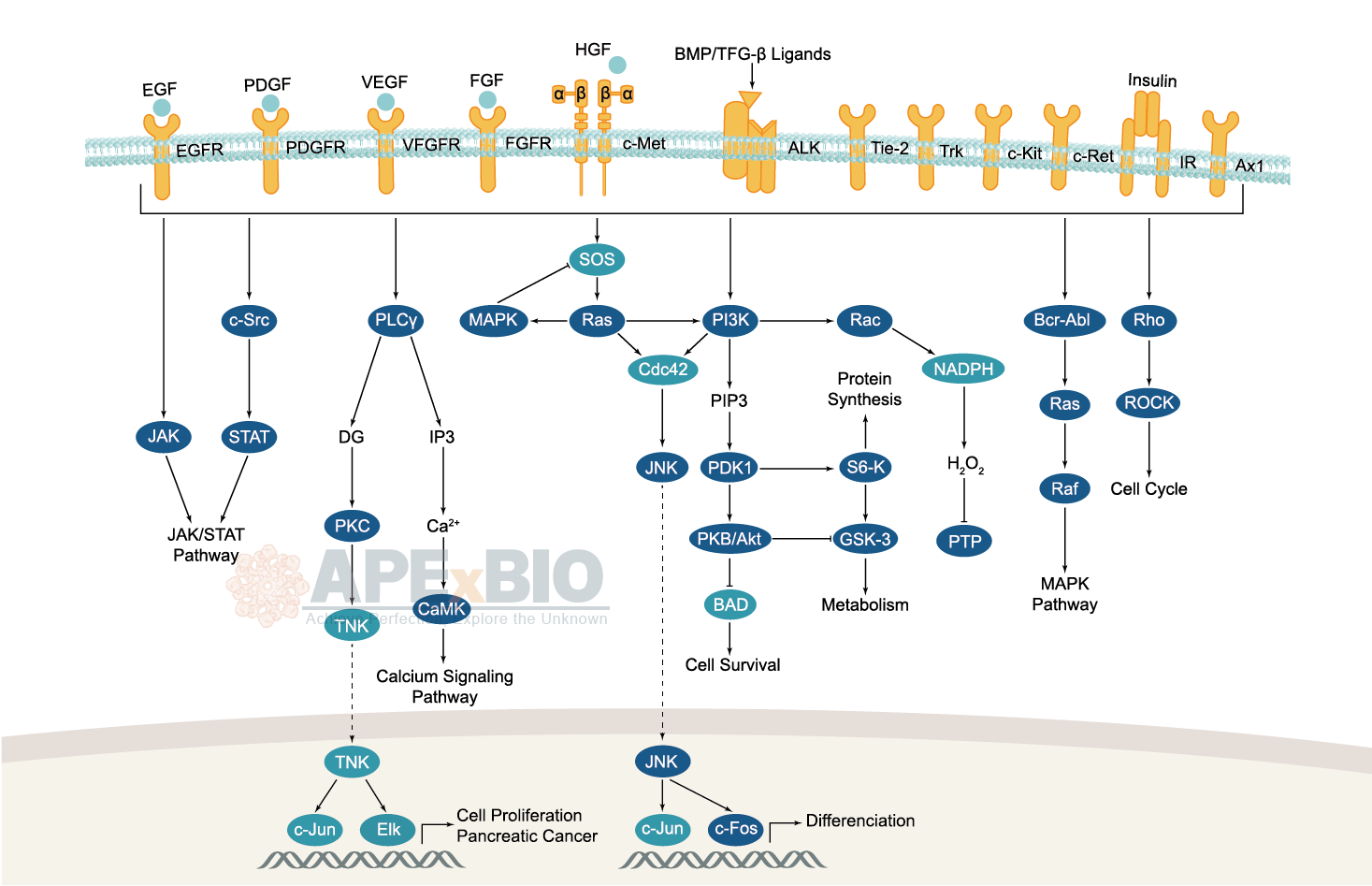
Receptor tyrosine kinases bind to extracellular ligands/growth factors, which promotes receptor dimerization and autophosphorylation of receptor tyrosine residues. This triggers a cascade of downstream events through phosphorylation of intracellular proteins that ultimately transduce the extracellular signal to the nucleus, causing changes in gene expression. Receptor tyrosine kinases include EGFR/ErbB, PDGFR, VEGFR, FGFR and MET subfamilies etc. Dysfunctions in tyrosine phosphorylation are linked to oncogenic transformation. In additions, various adaptor and effector proteins couple to carboxy-terminal of an active kinase. For instance, binding of the GRB2 adaptor protein activates EGFR and MAPK/ERK signaling.
Non-receptor tyrosine kinases involve many well-defined proteins (e.g. the Src family kinases, c-Abl, and Jak kinases) and other kinases which regulates cell growth and differentiation. For example, Src family kinases are curial for activating and inhibitory pathways in the innate immune response.
-
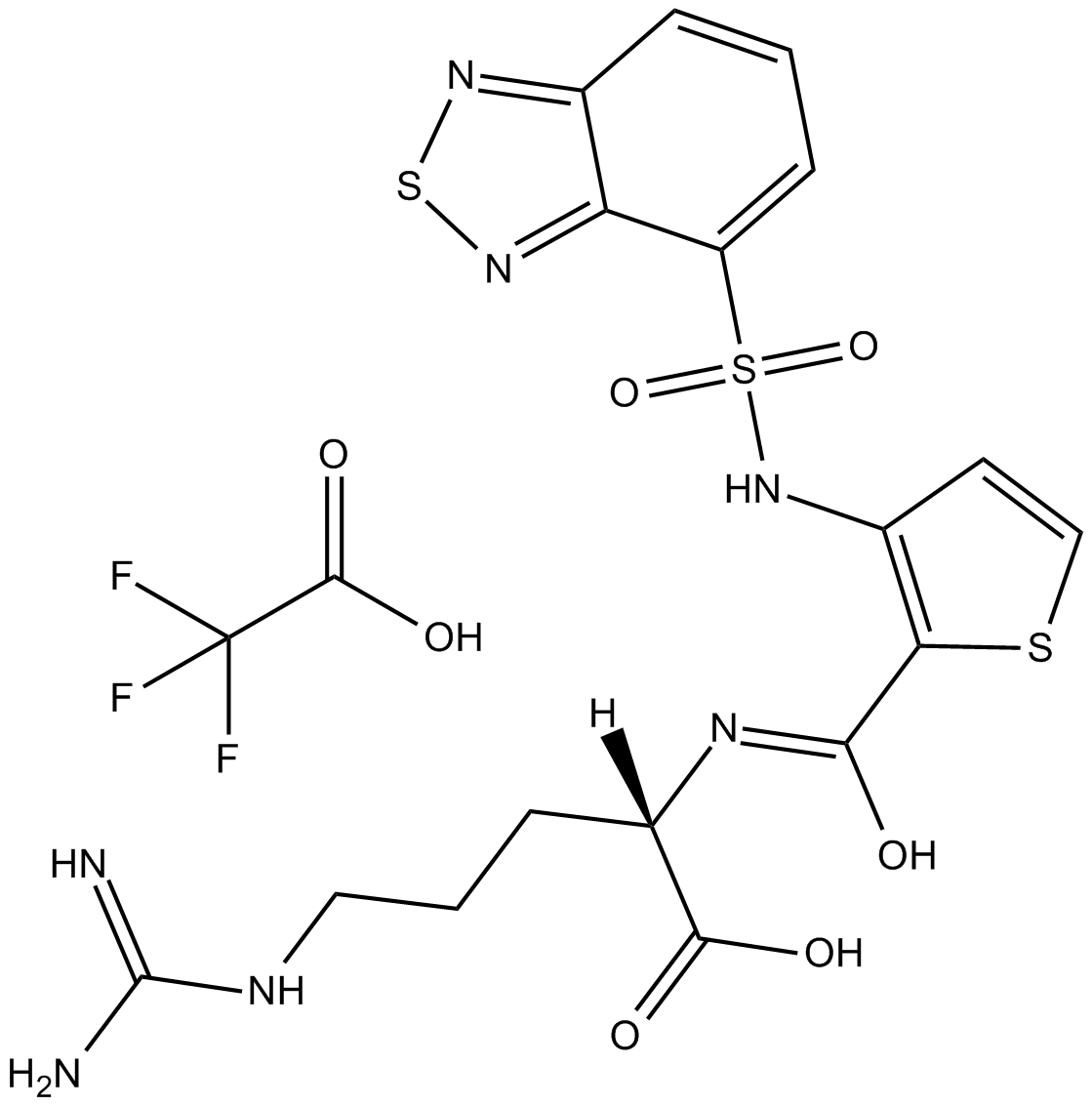 B4657 EG00229Summary: Nrp1 inhibitor
B4657 EG00229Summary: Nrp1 inhibitor -
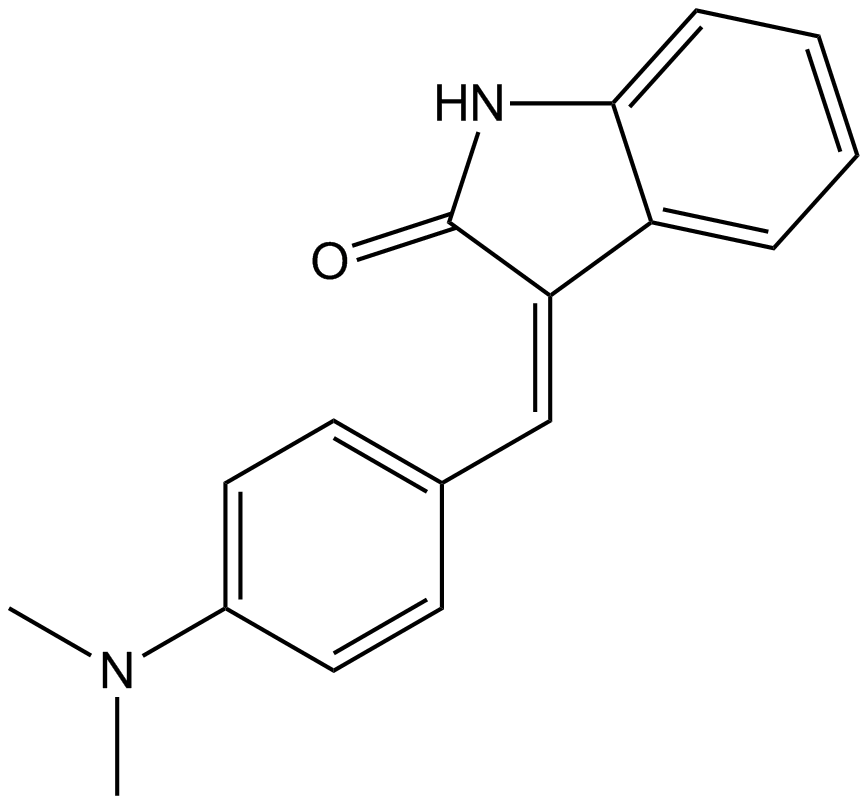 B6746 SU 4312Summary: VEGFR and PDGFR tyrosine kinases inhibitor
B6746 SU 4312Summary: VEGFR and PDGFR tyrosine kinases inhibitor -
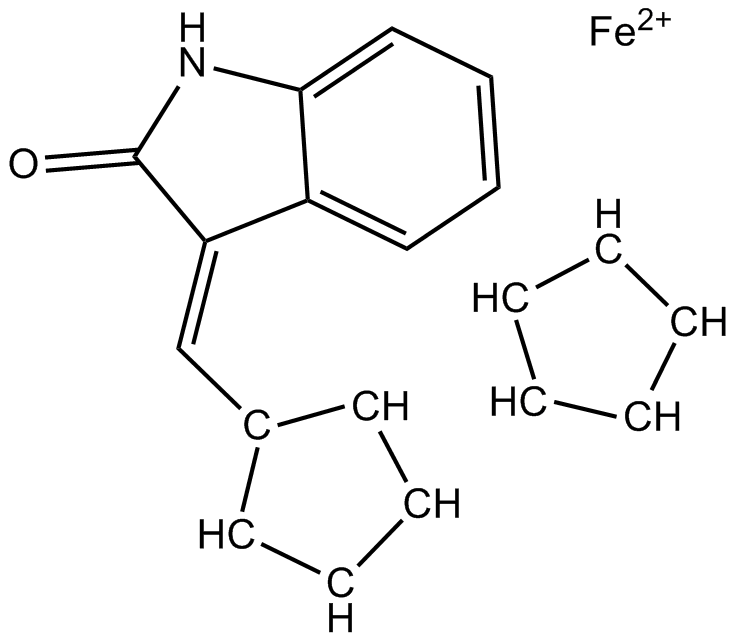 B5490 (E)-FeCP-oxindoleSummary: VEGFR-2 inhibitor
B5490 (E)-FeCP-oxindoleSummary: VEGFR-2 inhibitor -
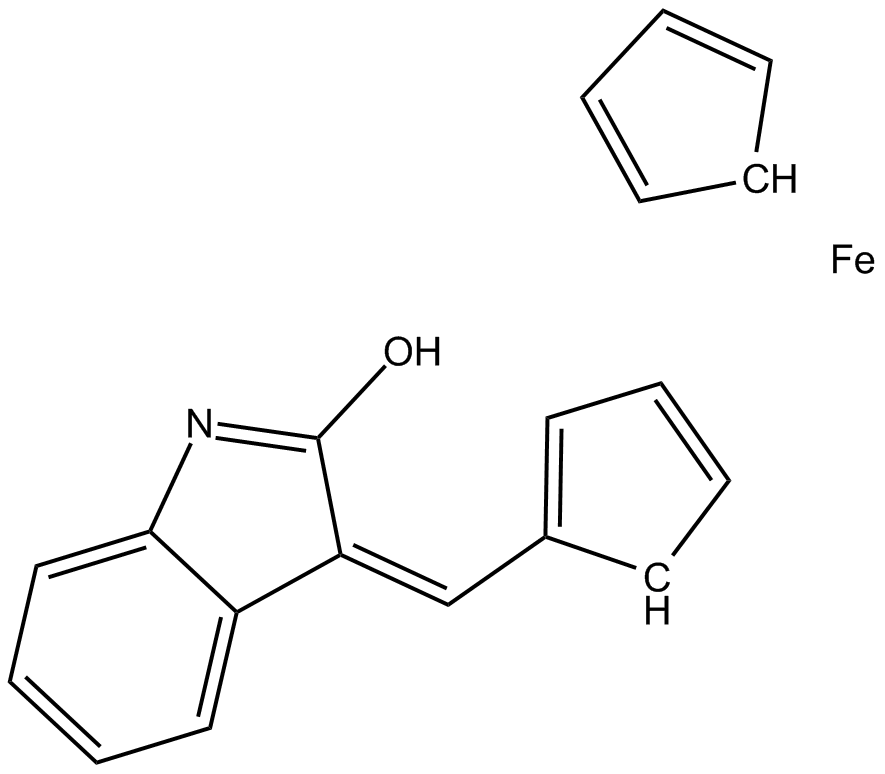 B5491 (Z)-FeCP-oxindoleSummary: VEGFR-2 inhibitor
B5491 (Z)-FeCP-oxindoleSummary: VEGFR-2 inhibitor -
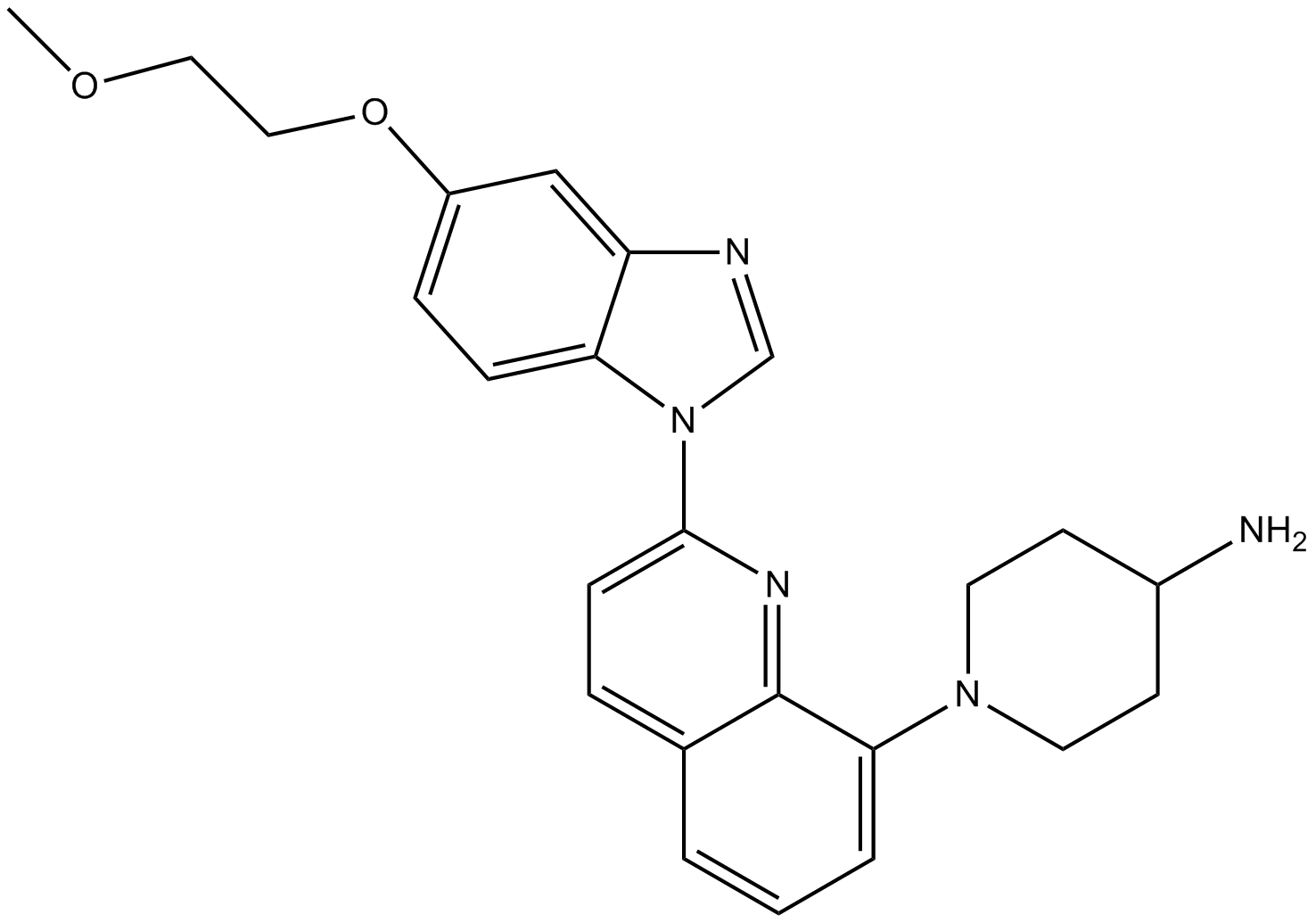 B2173 CP-673451Target: PDGFRSummary: PDGFRα/β inhibitor,potent and selective
B2173 CP-673451Target: PDGFRSummary: PDGFRα/β inhibitor,potent and selective -
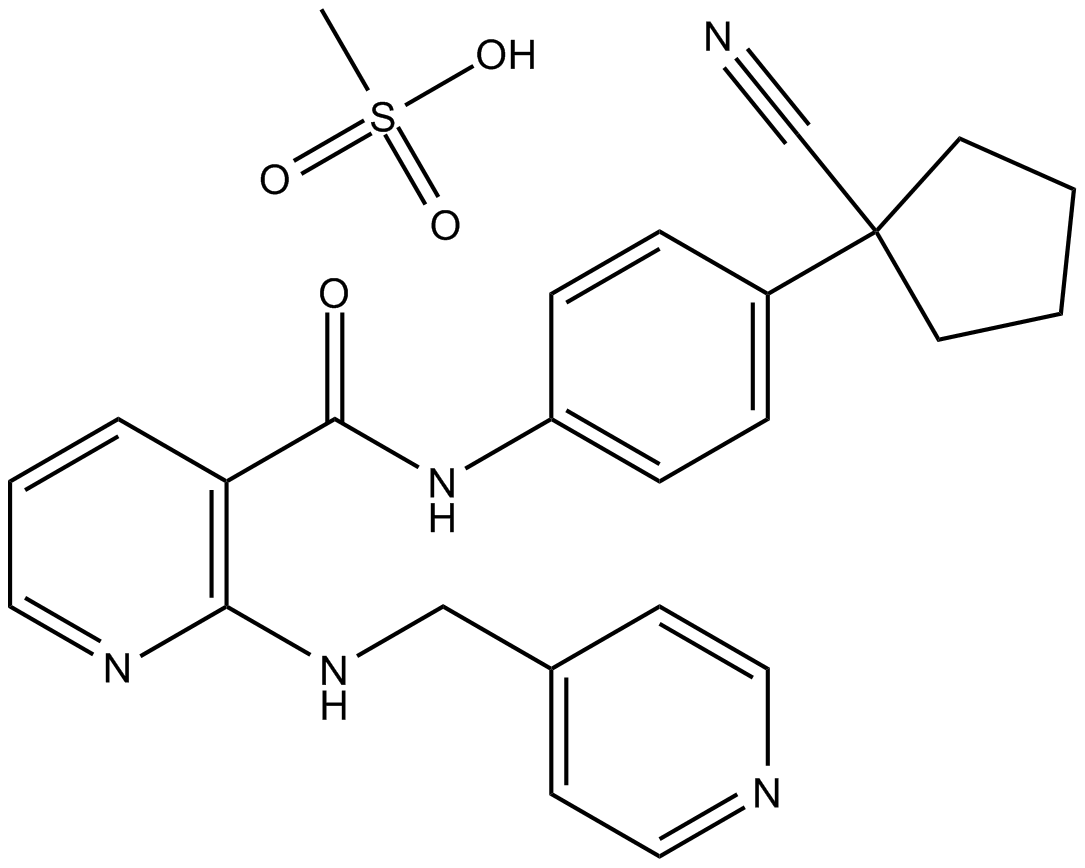 B2303 Apatinib1 CitationSummary: VEGFR2 inhibitor, orally bioavailable, selective
B2303 Apatinib1 CitationSummary: VEGFR2 inhibitor, orally bioavailable, selective -
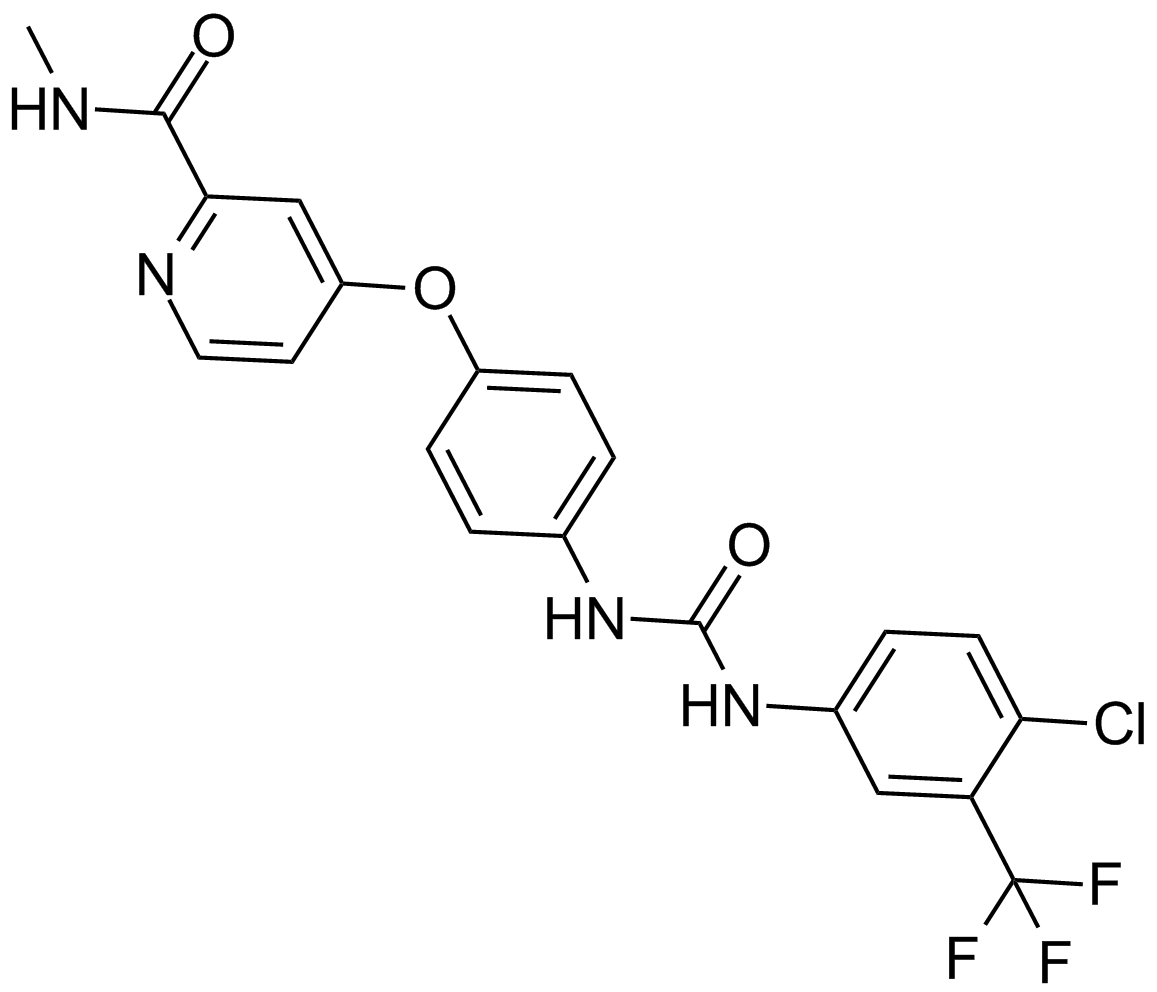 A3009 Sorafenib2 CitationTarget: Raf|VEGFRSummary: Raf kinases and tyrosine kinases inhibitor
A3009 Sorafenib2 CitationTarget: Raf|VEGFRSummary: Raf kinases and tyrosine kinases inhibitor -
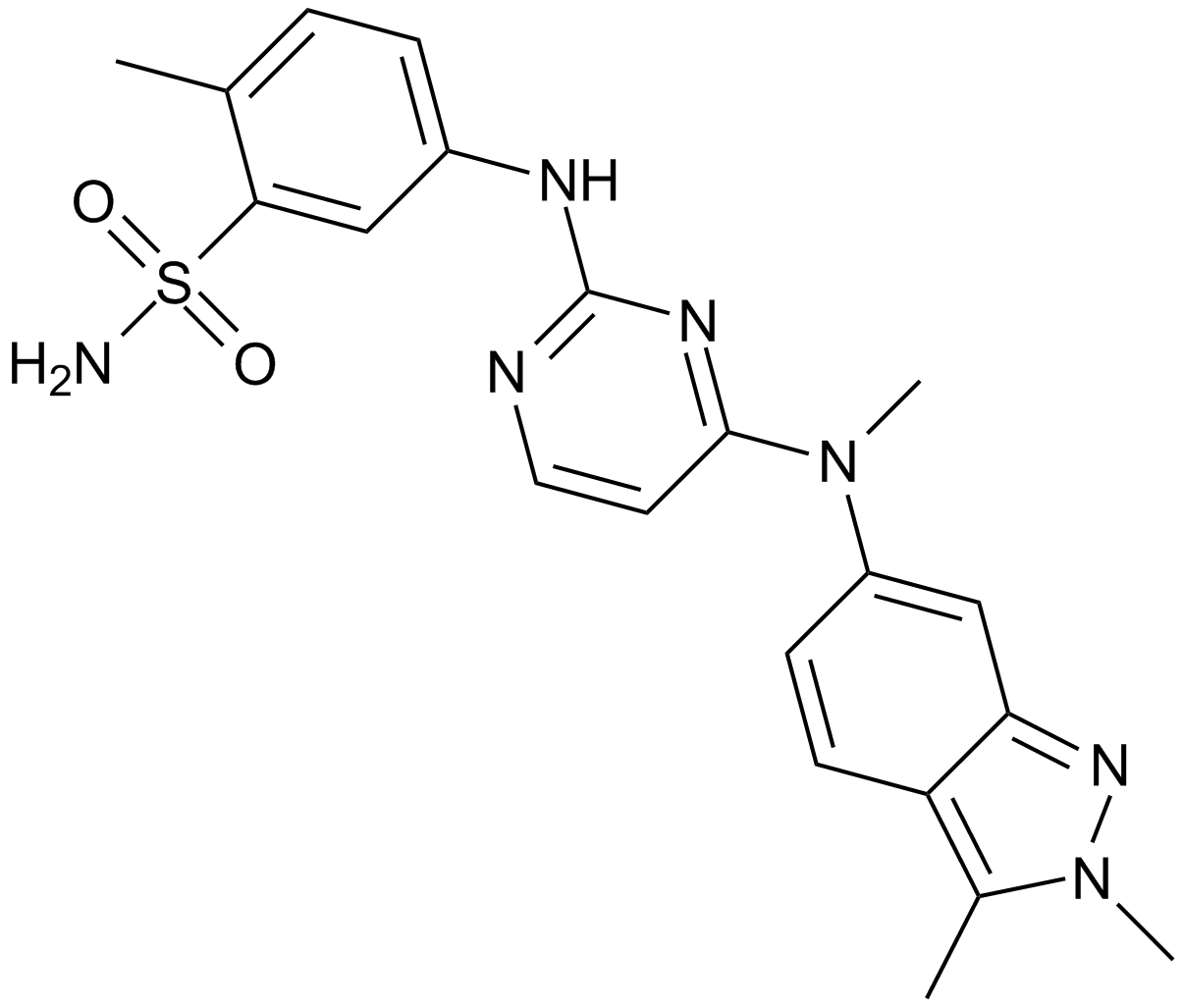 A3022 Pazopanib (GW-786034)Target: CSF-1R|VEGFR|PDGFR|c-Kit|FGFRSummary: VEGFR/PDGFR/FGFR inhibitor
A3022 Pazopanib (GW-786034)Target: CSF-1R|VEGFR|PDGFR|c-Kit|FGFRSummary: VEGFR/PDGFR/FGFR inhibitor -
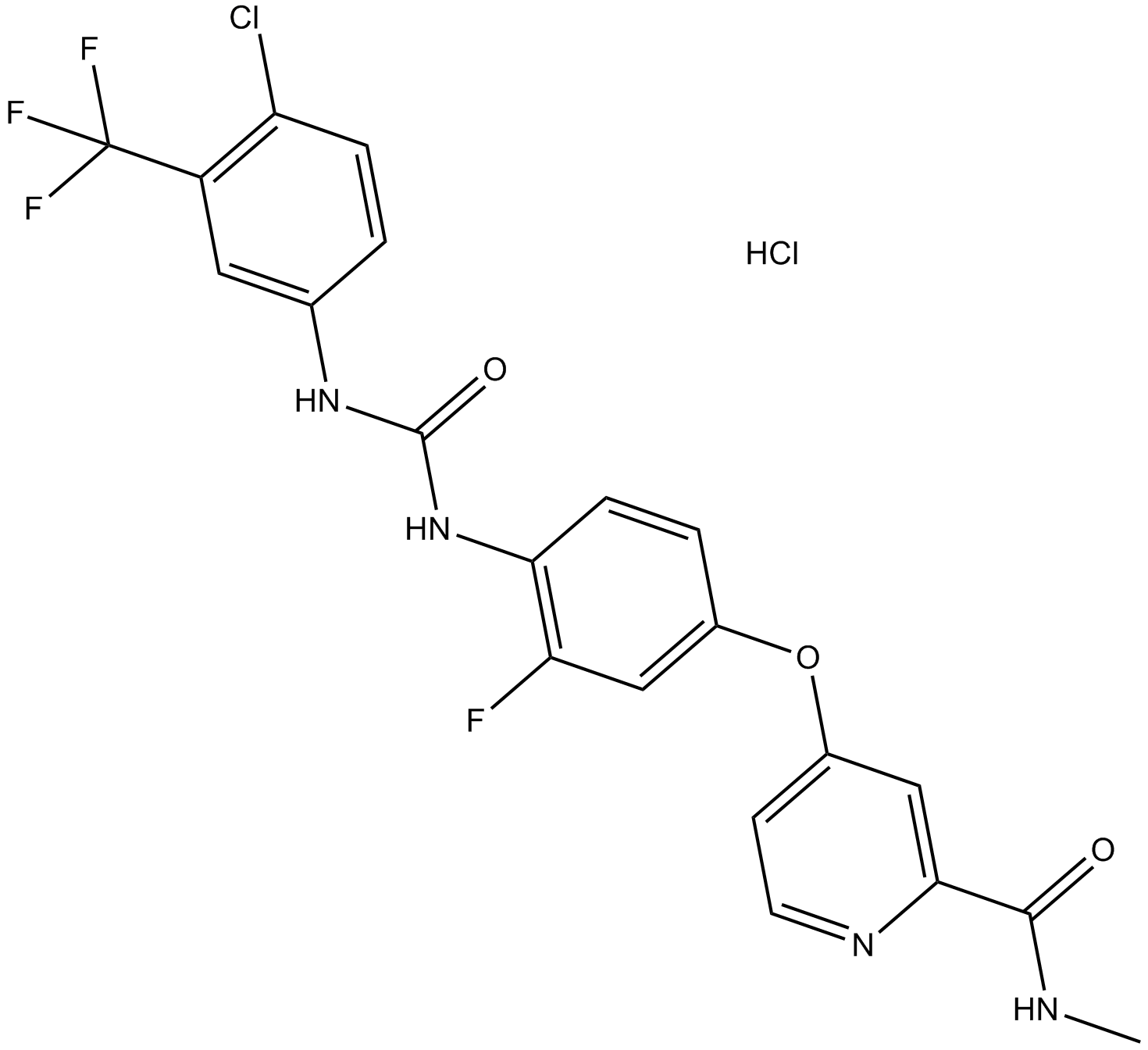 A3750 Regorafenib hydrochlorideTarget: Raf|VEGFR|PDGFR|c-Kit|c-RETSummary: Tyrosine kinase inhibitor
A3750 Regorafenib hydrochlorideTarget: Raf|VEGFR|PDGFR|c-Kit|c-RETSummary: Tyrosine kinase inhibitor -
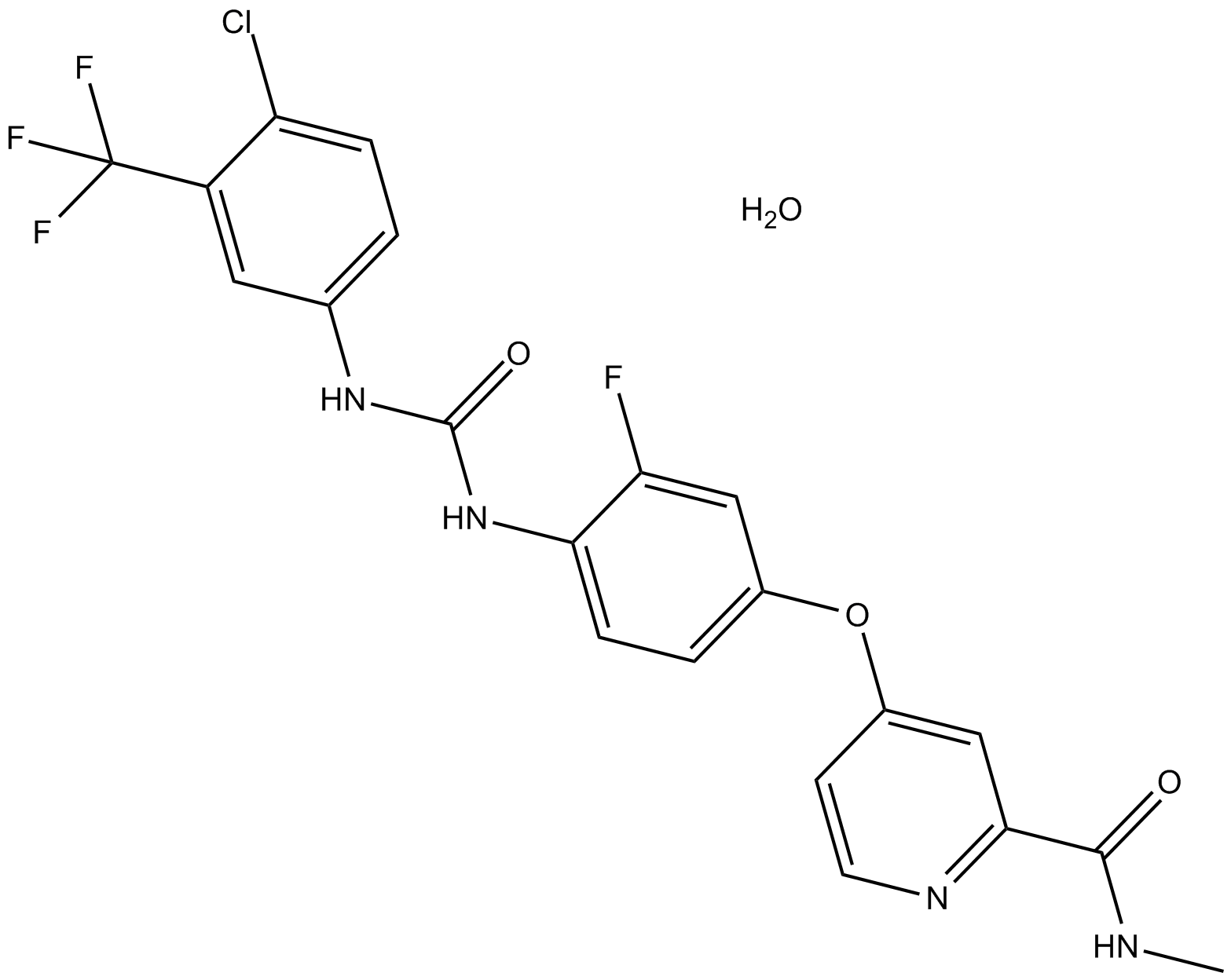 A3751 Regorafenib monohydrateSummary: Tyrosine kinase inhibitor
A3751 Regorafenib monohydrateSummary: Tyrosine kinase inhibitor

